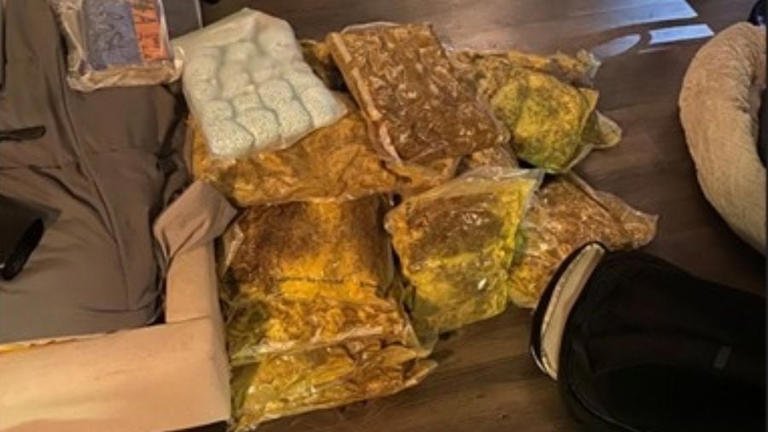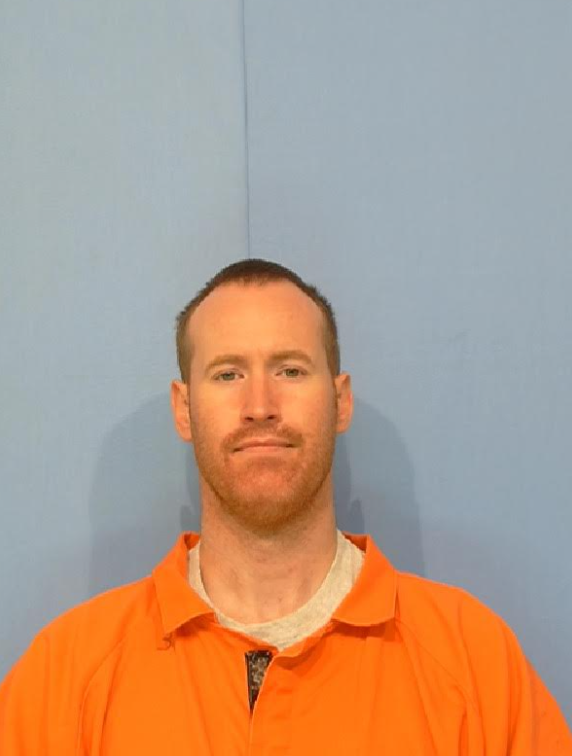By Trisha Garcia | August 23, 2025
While immigration continues to dominate political headlines and campaign rhetoric, a far more insidious threat to public safety festers within our own borders: the Aryan Brotherhood of Texas (ABT). These are not outsiders. They are entrenched, radicalized, and violent. They target law enforcement, poison communities with fentanyl, and operate with ideological fervor rooted in white supremacy. And yet, they remain largely absent from the public conversation—overshadowed by border theatrics and political posturing.
The August 15 federal sentencing of Yehoshua Kilp, a high-ranking Aryan Brotherhood of Texas member convicted of trafficking fentanyl and orchestrating violent attacks, should have been a turning point. Instead, it faded into the background—ignored by those with the power to act. Kilp’s network operated across multiple counties, laundering money, stockpiling weapons, and celebrating the murder of public officials. His conviction was a victory for justice—but it also exposed a disturbing truth: the most dangerous criminals in Texas aren’t crossing borders. They’re already here.
The investigation into Yehoshua Kilp, led by the FBI and DEA, mobilized more than 350 officers and ten SWAT teams. Despite being jailed on state charges, Kilp continued to direct a sprawling drug trafficking operation. His network moved:
• 223 pounds of methamphetamine
• 830,000 fentanyl pills
• Large quantities of heroin and cocaine
Kilp knew his fentanyl batches were causing overdoses. Still, he pressed forward—discussing ways to dilute the drugs or repackage them for body smuggling. His co-defendant, Sara Thompson, acted as his proxy on the outside and was sentenced to seven years earlier this year. This wasn’t a cartel—it was a domestic white supremacist gang operating with impunity, laundering money through Mexico and coordinating across state lines.
Even while working on this story, I encountered a troubling lack of transparency. Curious about Kilp’s origins—his name, his background, whether “Yehoshua Kilp” was his birth name—I submitted a formal request to the FBI field office. The response? They claimed not to have that information. Not that it was sealed. Not that it was classified. Simply that they didn’t have it. How could they not? This is a man with a criminal record dating back to age 14, who ran a multi-state drug operation linked to white supremacist prison gangs. If federal agencies can’t—or won’t—provide basic biographical data on someone they’ve just sentenced to 14 years, what else are we not being told?
Billions for the Border, Pennies for the Real Fight
The imbalance in federal resource allocation is staggering. In 2024 alone, the U.S. government spent over $25 billion on immigration enforcement, including ICE operations, border patrol expansion, and detention facilities. Meanwhile, funding for domestic counter-extremism efforts—especially those targeting white supremacist gangs—remained a fraction of that amount.
According to internal FBI memos reviewed by Cuero Online News 45% of agents in major field offices were reassigned in early 2025 to support immigration-related investigations, including joint operations with ICE and DHS. This shift came despite a documented rise in domestic extremist violence and a 5% proposed cut to the FBI’s overall budget. In effect, agents who once tracked fentanyl pipelines and extremist plots were redirected to process asylum claims and monitor border crossings.
This isn’t just inefficient—it’s dangerous. Every dollar spent chasing perceived threats at the border is a dollar not spent dismantling the Aryan Brotherhood’s operational cells in rural Texas. Every agent reassigned to immigration is one less investigator following the money trail that funds hate-fueled violence. And every political soundbite about “outsiders” distracts from the reality that the most organized, violent, and ideologically driven criminals are already embedded in our communities.
A Wake-Up Call for Texas
Cuero is no stranger to the ripple effects of organized crime. We’ve seen how fentanyl devastates families, how intimidation silences witnesses, and how extremist ideology corrodes trust in institutions. The Aryan Brotherhood of Texas doesn’t just traffic drugs—they traffic fear. Their members are trained, armed, and loyal to a doctrine that glorifies violence and racial supremacy.
Redirecting resources from border enforcement to dismantling domestic extremist networks like ABT isn’t just logical—it’s overdue. The August 15 sentencing should serve as a wake-up call to every policymaker, law enforcement leader, and voter in Texas: the threat is not hypothetical. It’s here. It’s growing. And it’s being ignored.
What Accountability Looks Like
We need transparency in how federal law enforcement resources are allocated. We need congressional oversight that prioritizes domestic safety over political optics. And we need local journalism—like Cuero Online News—to keep asking the hard questions:
- Why are white supremacist gangs treated as fringe threats when their violence is systemic?
- Why are rural communities left to fend for themselves while federal agents chase headlines?
- And how many more convictions like Kilp’s will it take before we recalibrate our priorities?
The Aryan Brotherhood of Texas is not a border issue. It’s a public safety crisis. And until we treat it as such, we are failing the communities we claim to protect.


